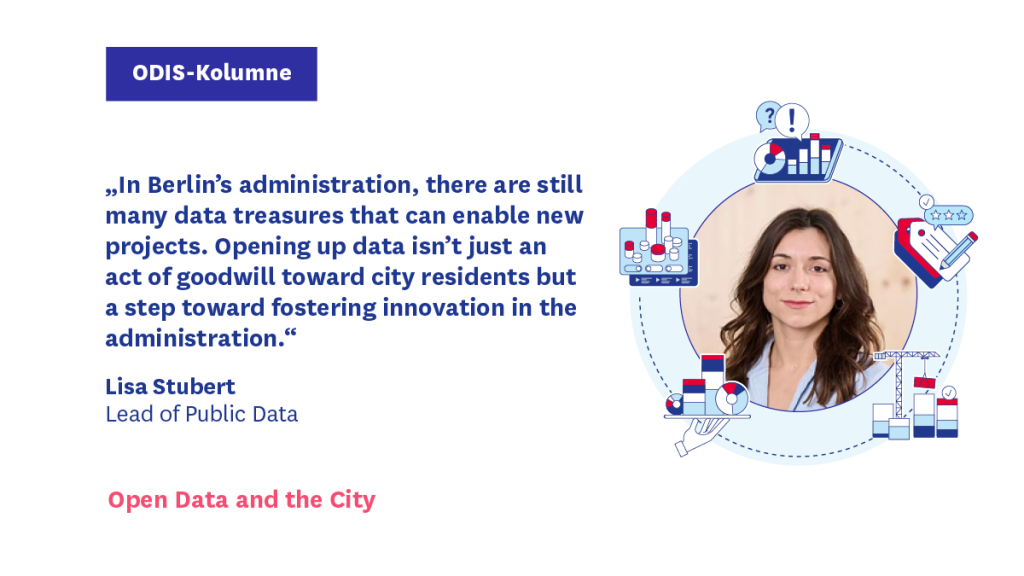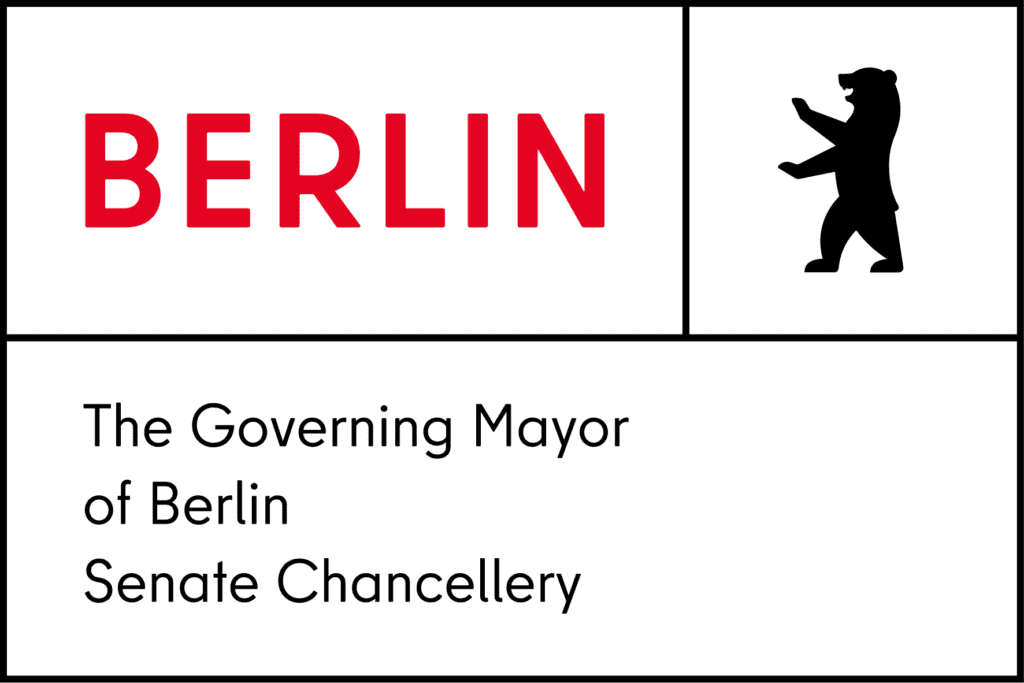Since 2018, the Open Data Informationsstelle Berlin (ODIS) has been guiding our city on its journey towards an open, sustainable, and data-driven society. The focus is on the provision and use of open data. In our column, a team member shares their work experiences based on the stages of the Open Data Journey and offers fascinating insights into their projects – including a few behind-the-scenes stories!

Why we’re fumbling in the dark with open data – and why that’s great
In the Open Data Informationsstelle (ODIS) team, there’s a running joke – and unfortunately, it’s at my expense. Every time I use the phrase “opening spaces for discussion,” I’m met with laughter, knowing smiles, or even eye-rolls. Why? Because by now, I use the phrase so frequently when talking about working with data in the Berlin administration that even in the most serious conversations with external parties, I find it hard to say without picturing my colleagues holding out an imaginary swear jar for me. And yet, I just can’t let it go. Because it perfectly captures the essence of a key aspect of open data that is both exciting and frustrating: data is published without us knowing exactly who will use it, when, how, or if it will be used at all. So, why is it still worthwhile? Flip the switch in the discussion room and find out!
Spotlight on: Discussion spaces help unlock data potential
By “discussion space,” I don’t mean a physical room, although passionate discussions do happen frequently in our offices and workshop rooms at CityLAB Berlin. Instead, the term describes how we develop insights and make decisions in data projects. It reflects our approach to open data and data management. At ODIS, our focus is on the provision and use of administrative data. For this, we developed the Open Data Journey, a guide that, in its first stage, “Understanding Data Potential,” shows that there doesn’t always need to be a perfect use case for every data project from the start. Rather, it’s about iteratively exploring and discussing potential and challenges. We should view data as basic infrastructure for innovative projects.
One particularly fascinating example, and one of my favorite projects, shows just how unexpectedly complex and unpredictable a data initiative can become when the framework is kept open and committed collaborators are on board. This project also brings back nostalgic memories of my school bag full of “Lustige Taschenbücher” (the “Funny Paperbacks”) – but more on that in a bit!
A practical example – and a trip down memory lane to Entenhausen
Imagine it’s 2030, in a Berlin library: Thanks to precise data analysis, staff know exactly what’s on the minds of people in the neighborhood. Books and events are perfectly tailored to their needs, and even the quietest corners of society are reached with custom offerings. Utilization is analyzed and forecasted in real time, and human and financial resources are efficiently deployed with data support. The path to such utopias becomes clearer when we use “discussion spaces,” as was evident in the collaboration with the Janusz-Korczak-Bibliothek in Pankow.
Originally, we simply wanted to publish loan statistics, anonymize them, and create a dashboard to help library staff better understand the usage of their resources. What eventually emerged from this data showcases the fascination of open data: it opens spaces for conversations, creativity, and new discoveries. The dashboard provides a completely new way of accessing the data, making it easy to explore the most borrowed items by category or user group. For me, it revealed a surprising insight – a beloved childhood book of mine, the “Lustige Taschenbücher,” still makes it into the top 10 of borrowed books today! The library staff, however, were less impressed; to them, this was nothing new. The real insights came from the discussions and analysis of the data, such as the spatial distribution of users, which hadn’t been considered before.
These insights showed that the dashboard alone wasn’t enough. It was only through dialogue with the library that the idea emerged to incorporate cross-departmental data sources, such as social indices or demographic information. Some of this data is already of good quality, while for other data that doesn’t yet exist, we can advocate for its future availability. It also became clear that specialized analytical tools, like Geographic Information Systems (GIS), and the skills to use them, are required to gain deeper insights. In GIS workshops with staff from various district libraries, new methods of analysis and application were developed that hadn’t been foreseen. This is the strength of an open discussion space: no rigid plan, but rather a collaborative exchange leading to innovative solutions.
Data Talks in the Neighborhood: The Next Step to Urban Utopia?
In Berlin’s administration, there are still many data treasures that can enable new projects. Opening up data isn’t just an act of goodwill toward city residents but a step toward fostering innovation in the administration. But the more people from different backgrounds and with different goals gain access to data, the more creative ideas arise – extending beyond the original purpose of the data! This effect will only increase in the future with technologies like large language models, which can involve even those less familiar with data.
It’s also important to further engage with the public, researchers, and businesses in the discourse about data, opening up these discussion spaces to more people; this is something the upcoming Open Data Forum of the Federal Government is also testing. In our library project, we’re continuing to work on making the loan data available not just for Pankow but for all of Berlin, thus increasing the value for even more potential users across the entire city.

By the way, if you’re in the mood to borrow a “Lustiges Taschenbuch” again and want to discuss administrative data and other smart city topics with us, drop by and visit my colleagues at the Kiezlabor. It will be in the courtyard of the library at Wasserturm in Pankow from September 10th to October 4th.
The next ODIS column, by data enthusiast Klemens Maget, will focus on “Identifying & Describing Data.” You can read it next month on the CityLAB blog.
